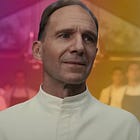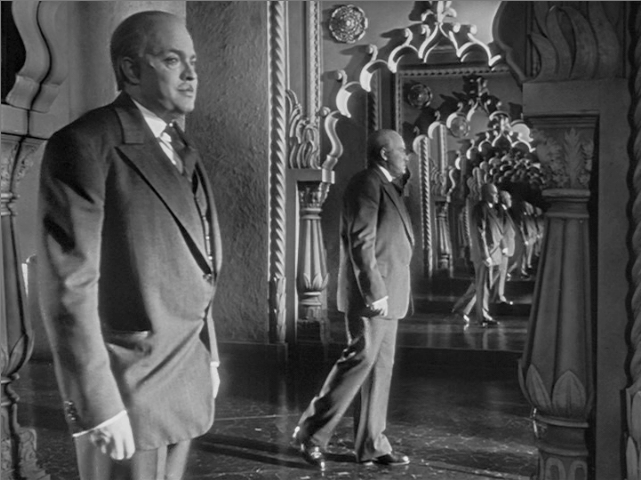We all hate the rich. Now what?
The "Eat the rich" stories are starting to go around in circles
Hey friends,
It’s been a while! Maybe you didn’t notice my absence, but this is the longest (almost 2 months!) I’ve been without publishing since I started this newsletter in 2021.
Life just happened, I guess. But I certainly missed writing.
Anyway, here is what I have been thinking lately.
We laughed at the rich in movies and TV shows like White Lotus. We've scowled at their stupidity, their shallow lifestyles, their shocking cluelessness. We've witnessed their dangerous selfishness and their complete lack of scruples. Through shows like Succession, we've even found ourselves empathising with them. Who would want to live their miserable lives filled with backstabbing, relentless competition, and zero downtime? Who wouldn't be as out-of-touch as they are under these circumstances?
Why are there so many stories like this now? Maybe it’s the rampant inequality. Maybe a desire for escapism or a fascination with the trappings of wealth. Maybe Hollywood is giving us some outlet for our economic anxieties and unrest through them. Whatever the case may be, it does not seem to be enough. Increasingly, they feel the same. In short, they all highlight that “rich people s*ck”, and stop just there. Leaving us with an empty sense of righteous satisfaction.
HBO's Mountainhead is a perfect example of this. The film follows four tech billionaires who gather annually in the Swiss Alps to ski and... decide the fate of the world (a not-so-subtle Davos parallel?). Within minutes, we're shown what awful, narcissistic, selfish idiots they are. So much so that they plot to kill the one member who objects to their world-domination schemes which include making one of them Argentina’s president.
Despite Succession's creator Jesse Armstrong being the director, Mountainhead's characters feel cartoonish and hollow compared to the Roy family's nuanced awfulness. It's just the latest in a string of underwhelming rich-people satires, from Triangle of Sadness to The Menu. Yes, we get it: The ultra-wealthy are terrible people. But how many times do we need an allegory to tell us so?
Each of them brought a little bit of satisfaction and an entirely different flavor of seeing just how terribly some would behave. However, the effectiveness of satire in these films and shows often hinges on their ability to offer fresh insights or provoke thought beyond the surface-level critique of wealth.
When the narratives become predictable and the characters one-dimensional, the satire loses its punch and risks becoming a mere echo of previous works. To truly impact audiences, these stories need to delve deeper, exploring the complexities of power dynamics and offering more than just a caricatured portrayal of the rich.
Now what?
Here's what's missing: real contrast. Not just token "normal people" in the background like Succession occasionally offered, but proper protagonists we can root for.
Don't Look Up understood this. Against the cartoonish rich villains (the tech bro, the president, and the media), we have Jennifer Lawrence and Leonardo DiCaprio's scientists. Flawed but fundamentally decent people trying to do the right thing. Sure, the film has its issues, including being overly pessimistic about climate action, but at least it gives us someone to root for, while making fun of the rich.
The Menu attempted something similar with Margot, the escort protagonist - though her purely self-interested survival instincts made her far less compelling (I've written about why this didn't work for me before).
The best examples might actually be the OxyContin dramas: Dopesick and Painkiller. These shows gave us both: the Sackler family's Succession-esque awfulness AND determined protagonists fighting back — grieving families, conscious workers and tenacious prosecutors. We see the full picture: the wealthy villains' machinations, their lack of care for anyone AND ordinary people's struggle for justice.
Most importantly, these stories offer hope. I think it's clear to anyone how the rich rig the system. What is lacking are examples of the system working. Slowly, imperfectly, but working. We need more of this. Not another story of wealthy narcissists under another allegory, but stories of collective action.
Where are the stories of the many people who worked together to overcome what seemed immovable? Reaching something that seemed impossible to reach?
Stories that bring hope. That's what I want to see more of instead of another voyeuristic view of how the rich have all the comfort but no consciousness.
Moral Ambition by Rutger Bregman
Rutger Bregman's Moral Ambition makes a provocative case: privileged Westerners (middle-class and up) aren't being ambitious enough. Not in the tired sense of chasing money or fame, but in pursuing real change like ending poverty, reversing climate damage, or stopping animal suffering. The kind of ambitions that actually matter.
Yes, it's another book by a white European guy writing from his bubble1. But that's precisely his point. People like him (like me, like many of us reading this) with stable incomes, brains and social safety nets could be moving mountains, yet we're barely lifting a finger. Why? According to him, we've misplaced our ambition.
Of course there are other reasons, but he's not so far off. Between buying thousands of useless things and wasting time on social media, we're squandering ridiculous amounts of time, money and potential. Don't get me wrong, I'm a Brazilian woman, not a Dutch guy, but let's be real: in the global privilege lottery, I'm quite fortunate too.
Here's the uncomfortable truth: we've weaponized anti-hustle rhetoric and cherry-picked philosophies to justify our passivity. Social media glorifies rotting your brain alone at home and treats self-care as an excuse for self-absorption. Life is brutal, sure, but perpetual disengagement isn't the answer. Change starts small: local actions, daily choices, or simply refusing to let life just happen to us.
Citizen Kane (1941)
Perhaps no film captures the paradox of wealth and emptiness more powerfully than Orson Welles' 1941 classicmasterpiece. From its explosive debut - when New York Times critic Bosley Crowther called it "close to being the most sensational film ever made in Hollywood" - to its current status as the perennial "Greatest Film Ever Made," Citizen Kane endures as cinema's most profound meditation on success and its discontents.
Welles' fictionalized William Randolph Hearst - the media magnate Charles Foster Kane - builds an empire of wealth and influence, yet remains forever denied the political power and genuine love he truly desires. What makes Kane so eternally compelling isn't just his Shakespearean grandeur, but how recognizably his DNA appears in modern titans - whether Murdoch, Trump, or Jobs.
But forget conventional biopic formulas. Welles constructs his narrative like a cinematic puzzle, assembling contradictory accounts from multiple narrators from across different genres. The result isn't just a character study, but an examination through which we look at the elusive nature of truth itself - both about public figures and the human condition.
Succession (HBO Max)
I've finally joined the club. After years of resisting, I binged all four seasons of Succession. And damn, does it deserve every bit of hype it's gotten. That final season? Absolute television perfection.
I'll admit, my first attempt years ago ended after the pilot. "Great," I thought, "another show about wealthy assholes being terrible." We get enough of that in our daily news feed. But something made me give it another shot, and what a good show it turned out to be.
What makes Succession so extraordinary isn't just that it shows rich people behaving badly - it reveals the profound emptiness at the core of their gilded lives. These are people who can buy anything except trust, who sleep in penthouse bedrooms but can't close their eyes without fearing betrayal, who wield unimaginable power yet remain powerless to earn genuine love.
The Roys are constantly fighting for position, even with family; working around the clock to maintain their empire; jumping at their father's every whim. They're surrounded by people yet profoundly alone. No true friends, only transactional relationships.
Here's the brilliant tension at the heart of the show: we simultaneously pity their isolation and cheer for their downfall. Yes, their lives are tragic but they're tragedies they've authored through endless cruelty and greed. I spent four seasons fantasizing about an ending where they lose everything.
What Succession understands so well is that extreme wealth doesn't just corrupt - it isolates, warps, and ultimately destroys. The Roys aren't just bad people - they're cautionary tales about what happens when money becomes the only language you speak.
I wrote this back in 2022:
Eat the rich?
Growing up, I was bombarded with US rich-kids stories. It all started in the 90s with Beverly Hills 90210 and moved into The O.C in the 2000s, later becoming Gossip Girl, although (I'm sorry to say?) I haven't watched much of the latest.
I especially disliked how clueless he was writing about the end of slavery, when it’s estimated that the number of people slaved today can be as much as 50 million. You can find modern slavery in most countries around the globe.















This was awesome.
One thought: I would encourage you to give Triangle of Sadness another shot. Act 3 was a brain-flipping exercise in reframing. It ended up being more a critique of humanity’s blind spots than merely wealthy a-holes.
Great post, and I’m really interested in the Rutger Bregman book - aware of his previous books but hadn’t seen this, so thanks for sharing